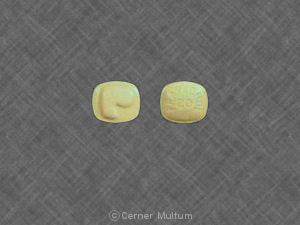Generic Pravachol Availability
Last updated on Sep 10, 2025.
Pravachol is a brand name of pravastatin, approved by the FDA in the following formulation(s):
PRAVACHOL (pravastatin sodium - tablet;oral)
-
Manufacturer: BRISTOL MYERS SQUIBB
Approval date: October 31, 1991
Strength(s): 10MG (discontinued) [RLD], 20MG (discontinued) [RLD] -
Manufacturer: BRISTOL MYERS SQUIBB
Approval date: March 22, 1993
Strength(s): 40MG (discontinued) [RLD] -
Manufacturer: BRISTOL MYERS SQUIBB
Approval date: December 18, 2001
Strength(s): 80MG (discontinued) [RLD]
All of the above formulations have been discontinued.
Note: Fraudulent online pharmacies may attempt to sell an illegal generic version of Pravachol. These medications may be counterfeit and potentially unsafe. If you purchase medications online, be sure you are buying from a reputable and valid online pharmacy. Ask your health care provider for advice if you are unsure about the online purchase of any medication.
See also: Generic Drug FAQ.
More about Pravachol (pravastatin)
- Pravachol consumer information
- Check interactions
- Compare alternatives
- Reviews (11)
- Drug images
- Latest FDA alerts (4)
- Side effects
- Dosage information
- During pregnancy
- Drug class: statins
- Breastfeeding
- En español
Related treatment guides
Related/similar drugs
Glossary
| Term | Definition |
|---|---|
| Drug Patent | A drug patent is assigned by the U.S. Patent and Trademark Office and assigns exclusive legal right to the patent holder to protect the proprietary chemical formulation. The patent assigns exclusive legal right to the inventor or patent holder, and may include entities such as the drug brand name, trademark, product dosage form, ingredient formulation, or manufacturing process A patent usually expires 20 years from the date of filing, but can be variable based on many factors, including development of new formulations of the original chemical, and patent infringement litigation. |
| Drug Exclusivity | Exclusivity is the sole marketing rights granted by the FDA to a manufacturer upon the approval of a drug and may run simultaneously with a patent. Exclusivity periods can run from 180 days to seven years depending upon the circumstance of the exclusivity grant. |
| RLD | A Reference Listed Drug (RLD) is an approved drug product to which new generic versions are compared to show that they are bioequivalent. A drug company seeking approval to market a generic equivalent must refer to the Reference Listed Drug in its Abbreviated New Drug Application (ANDA). By designating a single reference listed drug as the standard to which all generic versions must be shown to be bioequivalent, FDA hopes to avoid possible significant variations among generic drugs and their brand name counterpart. |
Further information
Always consult your healthcare provider to ensure the information displayed on this page applies to your personal circumstances.

